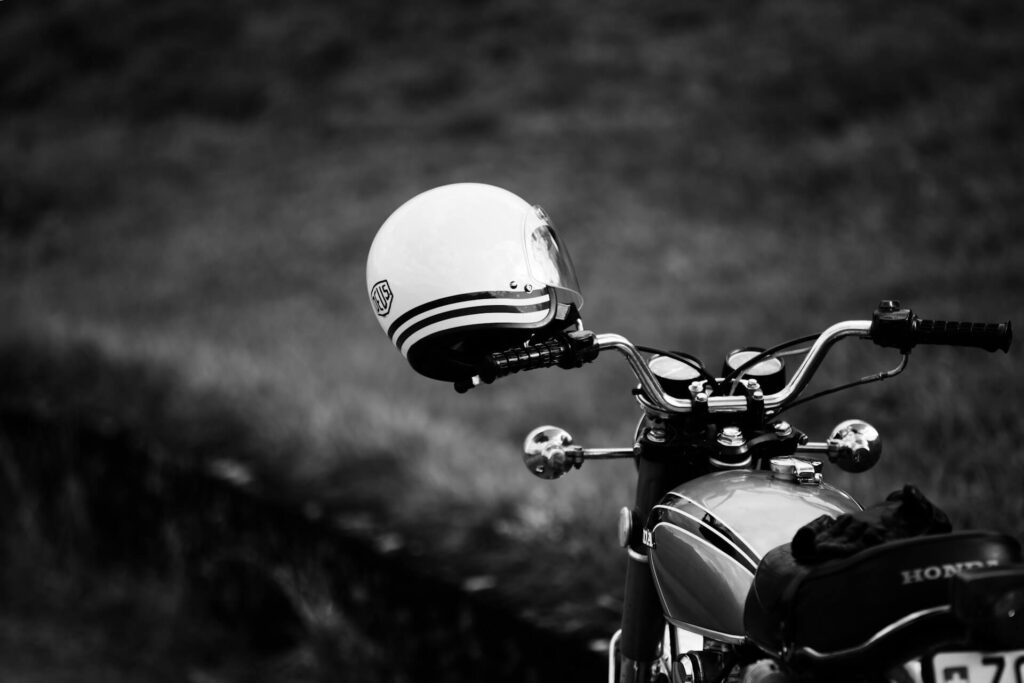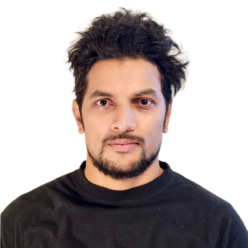The monsoon of 2006—I was fourteen, all arms and legs, a frame not yet filled in. I had recently returned to my hometown in the hills from a two-year mid-school stint in the rather plain and hot part of the country.
My father had a new motorcycle, fresh from the showroom. It stood in stark contrast to our old grocery store—a relic from the 70s, passed down from his parents, where I used to help on weekends and during vacations.

One day, the rain had stopped, and the sun was out after weeks of downpour. I was at our grocery store, mostly scooping seeds and cattle salt for peasants from the outlying villages.
Our old CRT TV—not yet replaced by a flat screen—had a problem again, and the only town mechanic had been trying to fix it for a week. Because not all his master remotes could talk to our aging set, he finally demanded ours. I, who was always ready to grab any opportunity to ride, quickly washed my hands and asked for the key to go get it. Home was only a mile away.
As always, he reluctantly handed the new key over—a passport to a mile of freedom—with a look that was part excitement and part prayer. “Slow,” he reminded me, “and watchful on the curves. It’s new asphalt.”
I had not yet learned the feel of a smooth throttle; my starts were a frantic, jerking lurch—a brief, untamed protest before the machine would grudgingly settle into a rumble. From the dust of our parking lot, that wild, uncontrolled leap would carry me across the highway, arcing onto the curve that led home.
It was a small town wedged in a valley where two mountains met, a gateway to the rural villages that stretched east. Its center was a gas station, flanked by a cluster of shops, and a scattering of new houses perched uphill—a place where people would still recognize my face today quicker than anywhere on earth.
Inside my helmet, my world narrowed to a single, imaginary line on the new asphalt—the precise line I wouldn’t cross to escape a four-wheeler returning from the east.
The houses thinned out, yielding unruly fields, electric with monsoon green that ended at an old landslide site. The road had been cut into the unstable slope, the scar above it buttressed by a stubborn gabion wall, a bamboo grove on the loose soil below ending in a creek. As a child, I’d clutch my parents’ hands here, while walking home from the store, afraid of ghosts in the dark. Later, walking back from school, it was some stray dogs—the way their eyes, searching for human company, would lock onto an aloof kid. But now, with a petrol engine firing beneath me, I felt nothing but power.
“The rice seed is excellent this year!” someone called out from the fields. From inside my helmet, my eyes fixed on the asphalt, I screamed a greeting back without knowing who it was—a gesture I immediately became proud of.
Then came a curve with a public tap. Next to it was an inn with a patio where guys would bet on carrom and lounge on benches, and where the peasants came to have tea and buy their cigarettes. Seeing a bunch of people my age, I decided to prove a little point. I took the curve with speed, showing off.
A glance, no more than two seconds—a fatal lapse. My eyes returned to the road as mere lenses, an afterimage rendered on my retina: a truck, parked stupidly on the curve, claiming half of it. The lizard brain seized control, revoking my misused free will and forcing a total surrender to the immediacy; my nerves gave way.
A moment frozen, an impact instant.
The bike hit the wheel, slammed, spun, and threw me eastward. I was dragged seven feet across the new asphalt—the black pitch that had been laid just a month ago.
And then, the humblest, craziest truth: I popped out of my body.
Not like in the movies, but like a thought-bubble in a cartoon. A seam tore in my immediate reality, and my consciousness was withdrawn—like a local server failing over to the cloud.
Into a profound silence. Into an absence of all pain. I became pure observation—a silent witness to my own body sliding down the road. I was the seer and the seen, and in that split eternity, I was free.
Back into the body, anchored by the burn of asphalt and the throb of torn skin. The reality of the crash rushed in: my jeans were ripped at the knees, my full-sleeved t-shirt torn. I tried to stand, to pick the bike up and simply leave—a futile attempt to outrun the shame, though I hadn’t returned to my body as fully as I had left. But then, men from the inn, old and young guys alike, swarmed, lifting the motorbike onto its stand and guiding me to the very bench I had, moments earlier, wanted to impress. I was seated as an object of pity, where I had hoped to be a figure of admiration.
Voices called my father. “Uncle, Saroj got in an accident.”
Accident. The word felt absurd for this little mishap, and I cried inside. It was new asphalt; it was a new motorbike, bought just last spring. My father arrived in a random van, its siren wailing. I sat in the front passenger seat, bowing my head not from pain, but to hide my face from the windshield and the entire world outside. He rushed me to the hospital. It turned out I had a broken ankle and a badly wrenched knee that took months to heal.
I returned to school with my arm in a plaster cast, the white surface already smudged with the season’s grime. My friends saw the sling and cheered. “Congratulations!” To them, it was a badge of honor. They hoisted me onto their shoulders, parading me around the classroom with a rhythmic chant: “Bro-ken arm! Bro-ken arm!” They celebrated the broken bone, completely missing the silent, unbroken truth it carried.
Back at home, the grocery store continued on without my hands. Neither did I have the courage to ask for the key for the next three years. In that gap, I left my hometown, did my high school in the capital. I grew my hair long, built new muscle, and learned to fill out my frame—all before I would let myself touch a motorcycle again.
My ankle and my knee completely recovered although they carry those scars as fossils. My spirit, too, slowly regained its center.
The motorcycle was fully repaired; it bore no visible scar, but it never recovered its balance. My father rode it for another seven years with a quiet, persistent wobble – a truth the machine refused to forget, even when I did
Life did not place me on that asphalt to break a bone, but to fracture a simpler reality early on. It was my first, brutal lesson in a truth that would become my life’s work: You cannot fly the spirit by abandoning your body. True flight begins only when the body is anchored. The road is always new asphalt—the gravel unsettled; the tar still soft. I learned the hard way that not all detours go around; some launch you through the sky.
